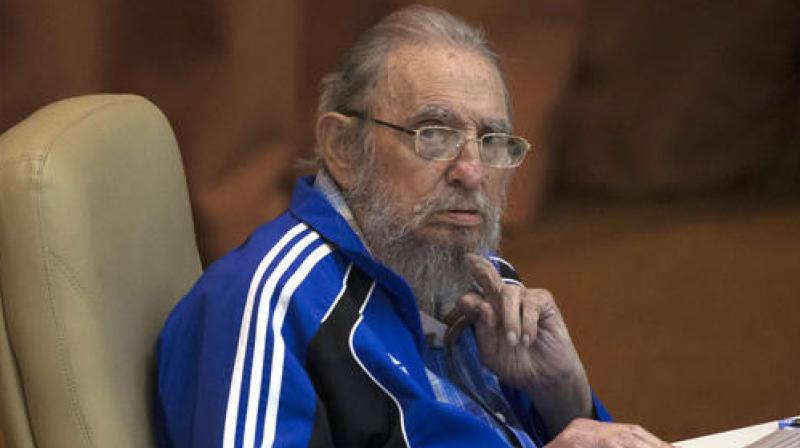Key dates in Fidel Castro's government in Cuba
Former President and revolutionary Cuban icon Fidel Castro died at the age of 90.

Havana: Key events in Cuba under Fidel Castro:
Jan. 1, 1959: Castro's rebels take power as dictator Fulgencio Batista flees Cuba.
June 1960: Cuba nationalises U.S.-owned oil refineries after they refuse to process Soviet oil. Nearly all other U.S. businesses expropriated by October.
October 1960: Washington bans exports to Cuba, other than food and medicine.
April 16, 1961: Castro declares Cuba socialist state.
April 17, 1961: Bay of Pigs: CIA-backed Cuban exiles stage failed invasion.
Feb, 7, 1962: Washington bans all Cuban imports.
October 1962: U.S. blockade forces removal of Soviet nuclear missiles from Cuba. U.S. President John F. Kennedy agrees privately not to invade Cuba.
March 1968: Castro's government takes over almost all private businesses.
April 1980: Mariel boatlift: Cuba says anyone can leave; some 125,000 Cubans flee.
December 1991: Collapse of Soviet Union devastates Cuban economy.
August 1994: Castro declares he will not stop Cubans trying to leave; some 40,000 take to sea heading for United States.
March 18, 2003: 75 Cuban dissidents sentenced to prison.
July 31, 2006: Castro announces has had operation, temporarily cedes power to brother Raul.
Feb. 19, 2008: Castro resigns as president.
July 2010: Castro re-emerges after years in seclusion, visiting a scientific institute, giving a TV interview, talking to academics and even taking in a dolphin show at the aquarium.
April 19, 2011: Castro is replaced by his brother Raul as first secretary of the Communist Party, the last official post he held. The elder Castro made a brief appearance at the Congress, looking frail as a young aide guided him to his seat.
April 19, 2016: Castro delivers a valedictory speech at the Communist Party's seventh Congress, declaring that "soon I'll be like all the others. The time will come for all of us, but the ideas of the Cuban Communists will remain."
November 25, 2016: Fidel Castro dies.

